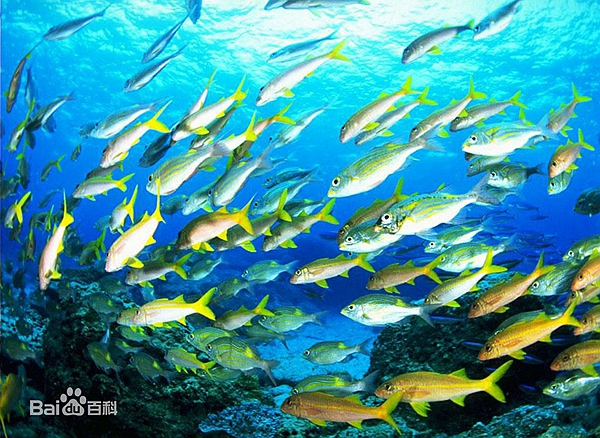China's Blue Partnerships can improve island life
- By Earl Bousquet
 0 Comment(s)
0 Comment(s) Print
Print E-mail China.org.cn, October 28, 2017
E-mail China.org.cn, October 28, 2017
 |
|
Blue Economy [File photo] |
If harnessed properly, the world's seas offer everlasting possibilities for sustainable growth and development of small island nations. Unfortunately, despite standing to benefit most, they lag behind in tapping the opportunities.
The notion of a Blue Economy, advocated at the Rio+20 United Nations Conference on Sustainable Development in 2012, invites nations surrounded or washed by the sea to harness maritime ecosystem resources – everything from aquaculture and sustainable tourism to marine biotechnology and seabed mining.
However, while larger nations have been able to achieve much, the smaller, poorer, disaster-prone island-states around the globe have been unable to access the funding and technology to follow suit.
Small island states – officially defined as countries with 1.5 million people or less – need a global action plan to discover and tap oceanic resources for their collective interests.
According to the UN Food and Agricultural Organization (FAO), oceans cover 71 percent of the Earth's surface, provide growing sources of renewable energy, increasingly contribute to global food production and security and provide 4.3 billion people with about 15 percent of their animal protein.
In addition, over 3.1 billion people live within 100 kilometers of the sea in about 150 coastal and island nations, with over 880 million directly depending on a mix of fisheries and agriculture for a livelihood.
In 2014, for example, the fishing sector provided steady employment for nearly 350,000 people across 17 Caribbean countries, creating income of US$420 million and foreign exchange revenue of nearly US$270 million.
The oceans are also great waterways for over 90 percent of universal trade, valued at US$3-5 trillion.
The Blue Economy can help islands everywhere, as they share interlocking marine borders and usually have jurisdiction over oceanic space several times their size.
The known available marine resources can progressively diversify and transform their economies, eradicate poverty, ensure food security and achieve long-term sustainable development.
Yet, very few island nations have developed innovative ways of beneficially farming the rich resources above and below their sea beds – and where they have, it's been mainly through Western "Big Oil" speculators.
Harnessing the winds, waves, currents and tides, farming the sea beds and such concepts are not normally part of the usual dialogue about development alternatives for island states and territories, but they should.
What has thus far gone to eternal waste in most islands is nothing new, as there have always been lone native voices advocating closer examination of how to best harness offshore natural resources as engines for new forms of development to promote more independence.
Therefore, the recent agreement between China and 12 island nations to strengthen cooperation in the Blue Economy, to protect their environment, pursue sustainable development and safely harness their marine resources, could not have come at a more opportune time.
Coming quickly on the heels of the 9th BRICS Summit in Xiamen, in coastal Fujian Province, the agreement means China will work closely with the islands to protect their oceans and implement related UN sustainable development goals.
Participants in this historic pact came from near and far and included the Caribbean twin-island state of Antigua and Barbuda, one of several only recently devastated by three successive hurricanes of unprecedented intensity.
Samoa, Cape Verde, the Maldives, Sri Lanka and Sao Tome and Principe are also represented.
A declaration from the meeting proposed a "Blue Partnership" and a cooperation mechanism for developing the Blue Economy, as well as Environmental Protection, Disaster Prevention and Oceanic Technology.
What this agreement between China and the islands does, among other things, is to open the way for joint mechanisms to implement the UN Sustainable Development Goals, jointly tackle common island environmental vulnerabilities and share in maritime development.
The waters surrounding island archipelagos have until now been mainly highways for shipping transport and fishing, and also for everything from wars to tourism, dumping grounds for cruise ship waste and free zones for shipping nuclear waste.
Proponents of the Blue Economy insist it can take societies out of scarcity and into abundance by harnessing and using local resources, always paying attention to constant integration of related approaches that take environmental and sustainability issues into concern.
The benefits of a Green Economy to small island nations is naturally endless. But, ironically, this fruitful concept, still relatively new to most, will still have to be sold – mainly by its successes – to the people it will definitely benefit most.
China's agreement with the 12 island nations is a step in the right direction that can significantly help them reap the benefits of their Blue Economies and significantly alter their prospects for overall economic development.
Earl Bousquet is a contributor to china.org.cn, editor-at-large of The Diplomatic Courier and author of an online regional newspaper column entitled Chronicles of a Chronic Caribbean Chronicler.
Opinion articles reflect the views of their authors, not necessarily those of China.org.cn.






Go to Forum >>0 Comment(s)